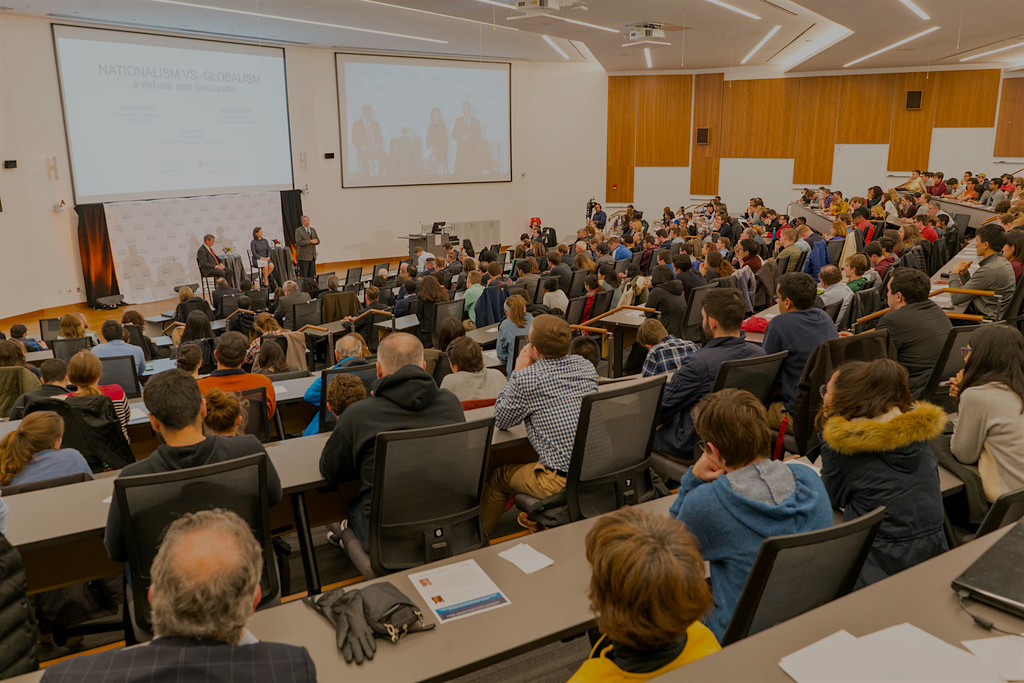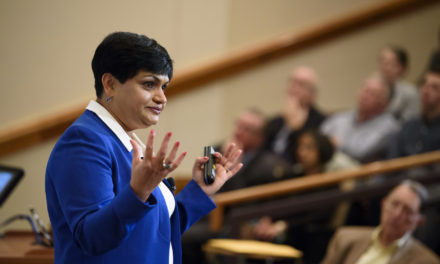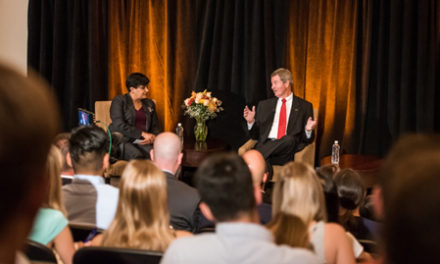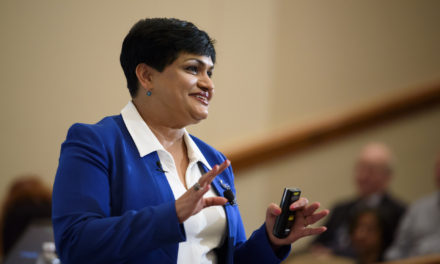A Safe Space for Active Minds
A Safe Space for Active Minds

Two political heavyweights went head-to-head recently on globalism versus nationalism, and the clear winner was higher education. Students petitioned the University of Maryland to cancel the April 5 debate, featuring former Mexican President Vicente Fox and Brexit architect Nigel Farage, but the event moved forward in a peaceful manner with only one brief interruption from the overflow crowd.
People get emotional about border walls and other topics related to national identity. As a naturalized U.S. citizen, I get that. But protesters miss the irony when they try to wall off their minds on a discussion about immigration and trade.
Consumers suffer when policymakers restrict the movement of goods and services across borders. Prices go up and nations grow soft without rigorous competition. “You have lost jobs because in manufacturing you have lost the competitiveness,” Fox told the audience. He was referring to U.S. trade and immigration policy, but his words take on added significance in the context of speech.
The same protectionist principles apply, but the stakes are higher when universities restrict viewpoint diversity — essentially creating walls that block some opinions while putting tariffs on others. The viewpoint monopolies that emerge kill competition in the marketplace of ideas, which should worry everyone.
Aluminum and steel are important for building goods and services, but minds matter more than any other resource. Creativity and innovation, the products of active minds engaged in free trade, undergird not only a nation’s material riches but also its intellectual and psychological growth.
Higher education must foster this growth, not destroy it by perpetuating the false dichotomy of an open versus closed mind.
Author Ayn Rand defines a closed mind as impervious to new knowledge, putting primacy on the emotional safety net of sticking to old thought. But she says an open mind is no better. It is always on the fence, not committing to a point of view, refusing to integrate the best available knowledge.
Developing an active mind is the true goal, given that educators can assume neither omniscience nor infallibility. An active mind is devoted to the process of knowledge acquisition, developing conviction based on prior integration, but being willing to change in the face of new evidence.
Without this process, even correct opinions lose their potency over time because people forget why certain notions are true. Inherited ideas get taken for granted the same as inherited wealth or any type of privilege.
The old maxim in family business holds true in the marketplace of ideas: The first generation creates the wealth, the second generation enjoys it, and the third generation destroys it.
Free speech and free thought — the movement of ideas across mental borders — foster a virtuous spiral that reverses the decline and keeps people alert. Fox and Farage reminded us of that.
“This debate is a victory before it even begins,” Farage told students at the Edward St. John Learning and Teaching Center in College Park, Md. “Because the fact is we’re having a proper, full, honest, open debate.”
Outside the auditorium, one student held a sign accusing Farage of racism and xenophobia. Another student held a sign that read: “Why does UMD ban Coca-Cola but not white nationalism?” A third student distributed counterfeit programs that called the event a farce. “Fox and Farage are reciting a script written by secret donors,” the handout claimed.
As an event organizer, I can assure attendees that nothing was scripted. But the claim did not worry me. Truth and error have a way of sorting themselves out in free and open encounters. That is the vision of the Steamboat Institute, which worked with the Ed Snider Center for Enterprise and Markets to bring the third leg of its four-part debate series to Maryland.
Ultimately the demonstrations were peaceful, and this deserves to be celebrated. “The challenge that faces us — and you as the next generation own this challenge — is how to have unity amid the rich diversity that we have,” UMD President Wallace Loh told the students before the debate.
In the face of numerous exhortations from students and faculty to repudiate the event, Loh noted his obligation not to interfere with a peaceful assembly. “The role of a university is not to make ideas safe for students,” he said. “It is to educate students to be safe for ideas — even ideas that they disagree with.”
Rajshree Agarwal is the director of the Ed Snider Center for Enterprise and Markets at the University of Maryland’s Robert H. Smith School of Business and is a Cato adjunct scholar.




